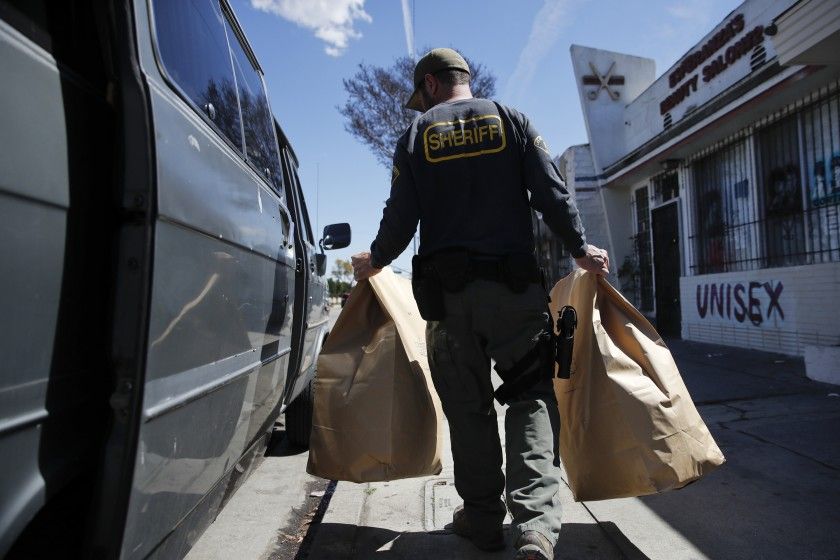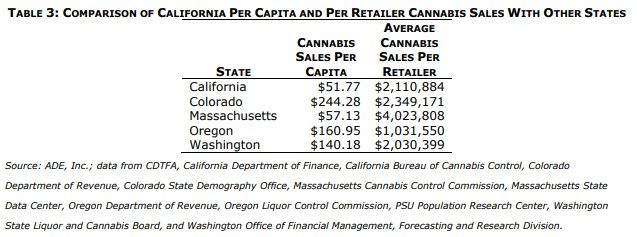bulllee
Well-Known Member
@bulllee - check it out...also addresses AZ
Personally, I'm not a Medmen fan at all. I have been in one of their stores in L.V. and was not impressed with the "we're too cool for school" vibe and IMO lousy product.
I also objected to them looking to scarf up dispensaries here in MD using the loophole workaround of "management contracts" which are complete and total BS and which undermines the intention of the legal and regulatory restrictions on selling licenses. Was kind of glad to see these deals fall through after they hit the skids recently.
More hurdles for marijuana MSO MedMen in Arizona, California – and in court
Bad news continues to pile up for California-based MedMen Enterprises.
After the multistate operator’s founders stepped down from leadership roles in January, their replacements have continued to struggle to right the ship, and just last month, MedMen lost a medical marijuana business license in Virginia.
Recently, MedMen has been further hit with:
- A lawsuit filed in May that so far has resulted in at least the temporary closure of two MedMen-branded Arizona stores, in Tempe and Scottsdale.
- The potential loss of a retail license in Pasadena, California.
- A new demand for $600,000 in legal fees from former Chief Financial Officer James Parker, who’s demanding the payment in an ongoing lawsuit he filed against MedMen in January 2019.
Combined, the three new hurdles could easily cost the company millions, not to mention the costs associated with keeping two formerly operational stores in Arizona shuttered while the litigation plays out.
A MedMen spokesman declined to comment for this story. But in an email to Marijuana Business Daily, he cited a recent company news release touting plans for a “financial restructuring and turnaround plan,” which includes deferring $32 million in financial commitments for a year.
“Implementing our turnaround plan is the best way to ensure that MedMen continues on its path to building the leading cannabis retailer in the U.S.,” MedMen interim CEO Tom Lynch said in the release.
But Mike Regan, an equity analyst and managing member of Denver-based MJResearchCo, pointed out the potential hurdles facing MedMen’s plans for recovery.
“Losing the Pasadena license would be a negative compared to MedMen’s restructuring plan, since Pasadena is a planned opening in the next 12 months,” he noted. “A license that cannot be transferred even internally isn’t worth much to an investor or creditor.
“MedMen planned to sell the Arizona dispensaries as part of the restructuring plan, so the question is if the lawsuit has delayed this process. The receipt of $10 million on July 2 for a future sale of a single unspecified non-California license may be related to this issue.”
Arizona
The Arizona case began in May when the original owners of two licensed Arizona MMJ dispensaries – CSI in Scottsdale and Kannaboost in Tempe – filed suit against MedMen for not paying $12 million still owed from an acquisition deal struck in February 2019, according to court filings.
MedMen originally agreed to pay $15 million to purchase both licenses, with a $3 million down payment made last August, according to the lawsuit.
In its own court filings, MedMen noted that it’s paid $33 million for the two shops.
The remaining $12 million, plus interest, was due in February.
But the company was not able to make that payment, and the deadline was extended multiple times, until the original license owners filed suit against MedMen, according to court records.
MedMen has countered in court filings that it has until the end of the year to pay the debt under an agreement it says was solidified between the parties.
The case is ongoing, but the two stores appear to have been at least temporarily shuttered.
According to MedMen’s website, one Arizona location is still operational, in Scottsdale.
California
In Pasadena, MedMen might lose a retail license it won last year because of executive turnover at the company, according to local news outlet Pasadena Now.
The Pasadena city manager’s office notified MedMen on July 1 that its application might no longer be valid because of the departure of at least seven company officials.
Pasadena Now noted the officials – which it did not identify – were “listed in MedMen’s initial January 2019 application as owners or key staff.”
According to Pasadena officials, that amounts to a “change in control” of the company and, therefore, the license, which is prohibited under the city’s marijuana licensing rules.
The city gave MedMen 10 days to prove “it remains under the control of the people listed on its application,” Pasadena Now reported.
Given the high turnover at MedMen – including the departures of former CEO Adam Bierman and ex-President Andrew Modlin – that appears unlikely.
Parker
To add to MedMen’s potential financial burdens, former CFO Parker is asking a judge to order the company to pay $600,000 in legal fees he claims he’s owed under his original employment contract. MedMen has hotly disputed that claim.
According to Law360, MedMen has responded that Parker himself violated the terms of his contract by departing without a required 90-day notice, which nullifies the company’s obligation to pay his legal bills.
MedMen trades on the Canadian Securities Exchange under the ticker symbol MMEN and on the U.S. over-the-counter markets as MMNFF.
Medmen came in here like gangbusters. Not so much anymore. I agree with you bad product all the way around. I think they left the valley, although there could be one in Scottsdale. JaJaJa Scottsdale is where they charge you twice as much because your in Scottsdale. Way overpriced Imo.
 . By law it has to be grown and or processed in state. When it comes to weed were still in the wild west. Some places will show test results while others will laugh at you if you ask. There is really no oversight . The dispensaries get away with murder. LOL But do we care?
. By law it has to be grown and or processed in state. When it comes to weed were still in the wild west. Some places will show test results while others will laugh at you if you ask. There is really no oversight . The dispensaries get away with murder. LOL But do we care?


